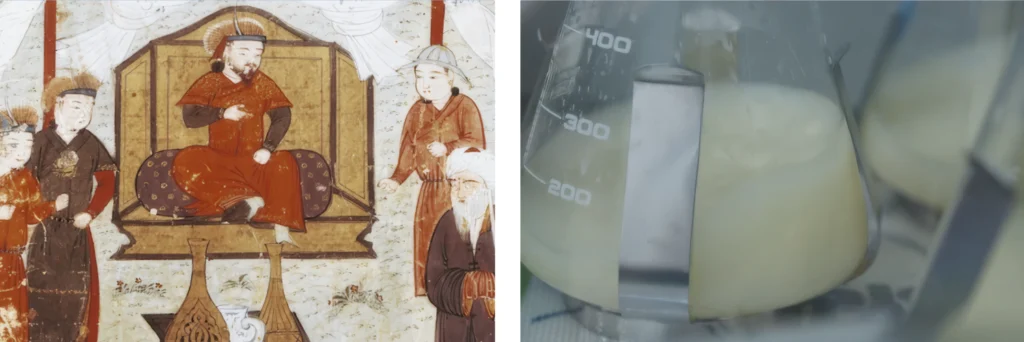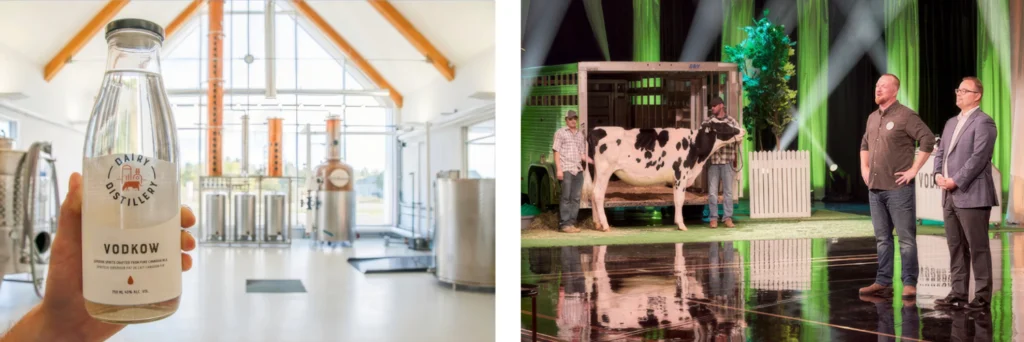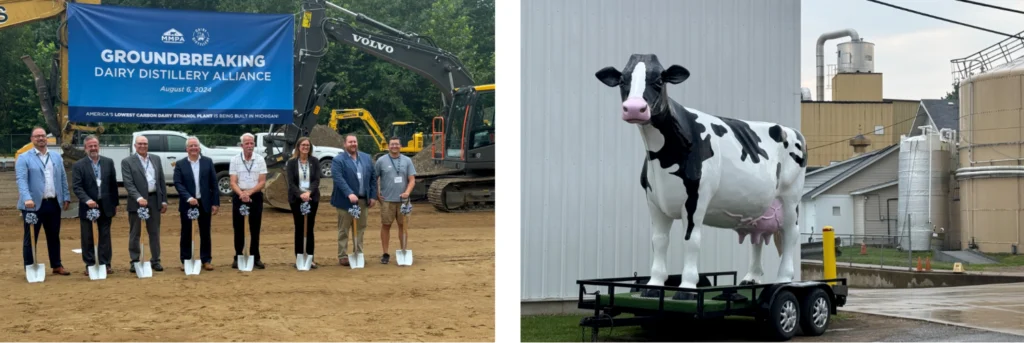“Vodka from a Cow” to “Cows can Fly”
“Who knew taking a break from tech startups to start a craft distillery would lead to clean energy innovation.” – Omid McDonald, CEO DD Biofuel
DD Biofuel’s innovation story started out unconventionally, at the crossroads of the spirits and dairy industries. And quite by accident.
Ottawa, Canada-based entrepreneur Omid McDonald took a break from tech startups to pursue a passion for craft distilling he picked up visiting Charleston, South Carolina. He discovered a creative opportunity after hearing his cousin’s story of a byproduct left over from dairy production being dumped. Knowing rum was originally invented to upcycle sugar cane molasses, McDonald wondered if alcohol could be made from this dairy byproduct too. Digging deeper, he discovered the Mongols fermented the sugar in mare’s milk (lactose) to make a drink called Kumis.

McDonald learned the dairy byproduct is called permeate and created from cheese and yogurt production. Being mostly sugar, permeate is perfect for making alcohol. He was fortunate to find a nearby dairy producer looking to put their permeate to use, and liked the idea of upcycling permeate into a vodka to reduce waste. Having found a source of permeate, McDonald co-founded Dairy Distillery with forward-thinking dairy farmers, craft distillers and investors from his former tech startups.
Working out of a purpose-built state-of-the-art facility in Almonte, Ontario, the multidisciplinary team perfected the process of turning permeate into vodka – aptly named Vodkow. The Vodkow story quickly captured the imagination of the Canadian craft distilling and cocktail scene, winning multiple awards. The Canadian mainstream followed when Vodkow landed a 2023 spot on the CBC’s hit Dragons’ Den TV series where entrepreneurs pitch their ideas to ruthless “Dragon” investors. The bidding war that ensued ended in the highest offer in the Canadian series’ history. Another first: a cow in the CBC’s downtown Toronto studios.

A few years prior in 2019, Dairy Distillery hired David Geros to scale Vodkow production. Geros, part of the team that built the world’s first cellulosic ethanol plant in Brazil, performed a carbon life-cycle analysis showing alcohol made with permeate would have an ultra-low carbon intensity (CI). Not only did this mean Vodkow production could be made carbon neutral, but permeate could be further transformed using the Dairy Distillery process into low CI transportation fuel.
In 2020, farmer-owned cooperative the Michigan Milk Producers Association (MMPA) reached out to Dairy Distillery looking to use their permeate to make Vodkow vodka. After learning how hard it would be to sell the 47 million bottles of Vodkow their permeate would produce, MMPA president Joe Diglio agreed using the permeate to make low carbon biofuel was a better way to help reach his co-operative’s sustainability goals.
With financial incentives from the State of Michigan and the US Federal Government’s Inflation Reduction Act, construction on a $41 million facility started in July 2024. Coming online in 2025, the state-of-the-art plant will transform 16,000 metric tons of permeate piped in from the MMPA’s Constantine, Michigan dairy facility into 2.3 million gallons of low carbon ethanol per year, with a CI between 5 to 12g CO2 megajoules (the final score will be determined when the plant is operational).
In September 2023, the US Department of Energy announced the SAF Grand Challenge, with an ambitious domestic production target of 3 billion gallons of SAF per year by 2030. The main obstacle to scaling SAF production is a lack of low carbon feedstocks. A new technology called Ethanol-To-Jet (ETJ) transforms low carbon ethanol into SAF. Given its low carbon intensity and domestic supply, Dairy Distillery ethanol is ideal for SAF production.

To pursue its SAF plans, Dairy Distillery spun-out Dairy Distillery Biofuel (DD Biofuel) – with the goal of providing its dairy partners with the most value for their permeate while contributing to the much-needed SAF feedstock supply at a cost comparable to fossil-based jet fuel.
